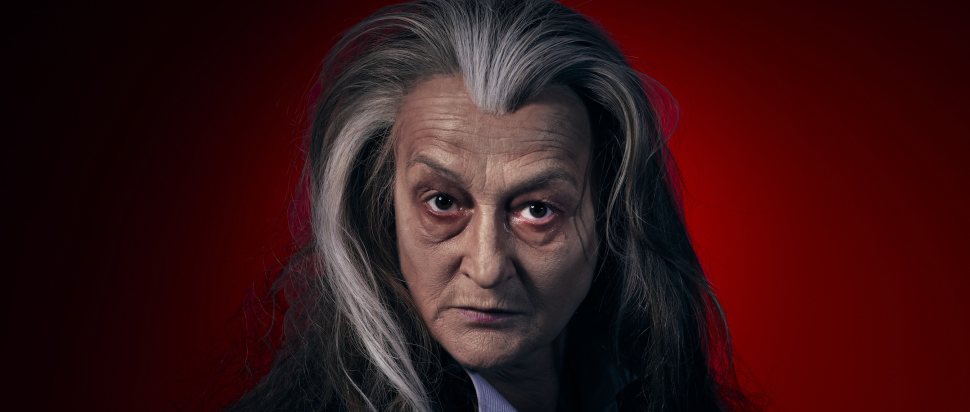Interview with a Vampire: Liz Kettle on NTS' Dracula
We spoke with Liz Kettle ahead of her portrayal as the iconic Dracula in the National Theatre of Scotland’s upcoming production Dracula: Mina’s Reckoning
It can be safely said that over the last 200 years there have been many iterations of the mythical creatures most commonly known as vampires. None, however, have been so instantly recognisable as the infamous gothic villain Dracula from Bram Stoker’s classic novel published in 1897. Adding to the list of adaptions is acclaimed Scottish playwright Morna Pearson who, alongside director Sally Cookson, is bringing to stages across Scotland and England a new take on the story with the National Theatre of Scotland in a co-production with Aberdeen Performing Arts and in association with Belgrade Theatre, Coventry.
Picking up where the novel leaves off, Pearson’s adaption puts the character Mina Murray front and centre. Set in a psychiatric hospital in Aberdeenshire in 1897, Mina, played by Danielle Jam, is joined by the patients – an ensemble of all women and marginalised genders – and together they tell a unique version of Bram Stoker’s legendary tale from her perspective.
The role of Dracula is played by Liz Kettle, who shares what rehearsals have been like in preparation for her portrayal. Of the atmospheric, Gothic-inspired set and costumes by Kenneth MacLeod she says:
“We've got a practice set, which is a really extraordinary privilege, actually, to have had that in the rehearsal room, that's about four stories high. It's like the outline of cliffs and ruins of a castle with so many different nooks and crannies that it can become like a cell or any kind of interior or exterior space. So I have been working very hard to try and regain some physicality, and also learn to move as a vampire with a cloak.”
Vicki Manderson has been on hand to coordinate the visceral movement needed to navigate the towering set design. To work around some of the more fantastical elements of the story, such as the shapeshifting and blood spilling, Lewis den Hertog produced inventive video design, aided by a distinctive score from composer Benji Bower.
The entire cast besides Mina double as characters within and outside the asylum, translating her terrifying experience at the hands of The Count through the words and actions of women. Kettle alludes to how her portrayal of the character transcends gender in this production, which looks at the story under a 21st century lens: “When I started telling people that I was going be playing Dracula, they said, ‘Oh, are you going to play it as a man or a woman?’ I said, 'Well, neither.' The question hasn't even occurred to me. I'm going to be playing the character and I’m going to look at the million and one facets of this extraordinary character, because, you know, it is a bit of an icon.”
In the same vein, vampires as a whole have been used as a tool to explore many of society’s greatest anxieties. The role of power is a prominent theme in the novel, centred on the fear of an outsider using their influence to infiltrate society from the inside, threatening the position of other men; but here, the focus is flipped onto women, and their relationship with power is explored instead.
To prepare for the role, Kettle did a lot of research into both past and present literature, films, and personalities surrounding vampires and women characters in gothic fiction. Cookson assigned a reading list for the cast to set them in the right headspace ahead of rehearsals. Kettle alludes to some modern day examples to draw inspiration: “For me as an actor, I was now thinking, okay, who am I like? And the people that come to mind are not pretty. Dracula is a complete charmer, and magnetic and effusive in praise when it suits them to be, but they ultimately abuse that power. You just pick up the paper today and you read about Trump or Andrew Tate, and those people are sucking the very lives out of people around them and you just think: well, there is a manifestation short of the teeth, huh?"
Given the many ways Stoker’s novel has been examined and regurgitated into the world under new guises, what makes this production stand out? “I'm sure there'll be some people that go, 'Well, it wasn't my version of Dracula.' But it doesn't matter, it's part of a greater story.” Kettle explains, “This show is about abuse, power, and misogyny, and whether it's in Victorian Scotland or Transylvania or now, it's about striving to make our times as good as they can be.”
Dracula: Mina’s Reckoning, touring the UK from 2 Sep - 28 Oct
